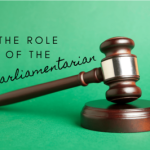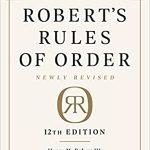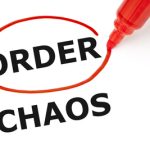Robert’s Rules of Order
Guest post by Jim Slaughter. Read our review of Jim’s book, Robert’s Rules of Order Fast Track. Ranked-choice voting (RCV) has received growing attention in recent elections. Just last month it was used in the New York City Democratic mayoral primary, where voters could rank up to five candidates in order of preference. If no…
If you are setting out on the path to become a parliamentarian that we describe here, these are the best tools to have. Links current as of publication. Robert’s Rules of Order Newly Revised, 12th edition, Robert’s Rules Association, published by Public Affairs, an imprint of Perseus Books LLC. Can order it ring-bound from National…
A councilmember writes: “Our city attorney and mayor are arguing that ‘there are no requirements to adopt Robert’s Rules or parliamentary procedures’ for our city council meetings.” What can I say in response? You are already following parliamentary procedure Unless state law says otherwise, the attorney and mayor are right that there is no legal…
Guest post by Nicole Schenk The motion Point of Order is a request to the chair to enforce a parliamentary rule, which a member is claiming has just been broken, or is in the process of being broken. Calling a Point of Order is a basic right of every member. It is one way to…
Guest post by Ted Weisgal Brigadier General Henry Martyn Robert was a genius. After a disastrous 14-hour meeting in 1863, he reflected for 13 years and attended lots of meetings. From those experiences as well as research into British parliamentary law and rules of the U.S. House of Representatives, he created what has become the…
Robert’s Rules of Order is a daunting subject for many folks who haven’t yet seen how much it improves meetings. We strive in Jurassic Parliament to distill key information that will help you run effective and fair meetings. Distillation is one thing, but ADDING RULES? When there are already hundreds of pages of rules in…
It is a fundamental principle of Robert’s Rules of Order Newly Revised, 12th edition (RONR) that main motions must be taken up at the proper time on the agenda. (A main motion proposes action by the body). This is necessary in order to preserve order, and the rights of members. To that end, RONR establishes…
It seems that a lot of confusion prevails within our local government bodies about the Motion to Reconsider and how to use it. This article describes when and how to reconsider a motion, and other ways of changing your mind as a body. It was first published on the MRSC blog. MRSC is a private…
Guest article by Ted Weisgal Are bylaws the be-all and end-all of organizational development? If you create good ones will a flourishing organization be the natural outcome? Probably not. Good bylaws are critically important, but you should also have: A mission that resonates with people, Orderly meetings, Members who are reliable, Agendas that justify people’s…
Updated November 20, 2022 Boards and councils often fail to process reports correctly. When an officer or a committee submits a written report, the board usually should NOT vote to accept, adopt, approve, or receive it. Instead, the report is noted as received for filing. No action is necessary. The minutes simply state: Last month’s…











